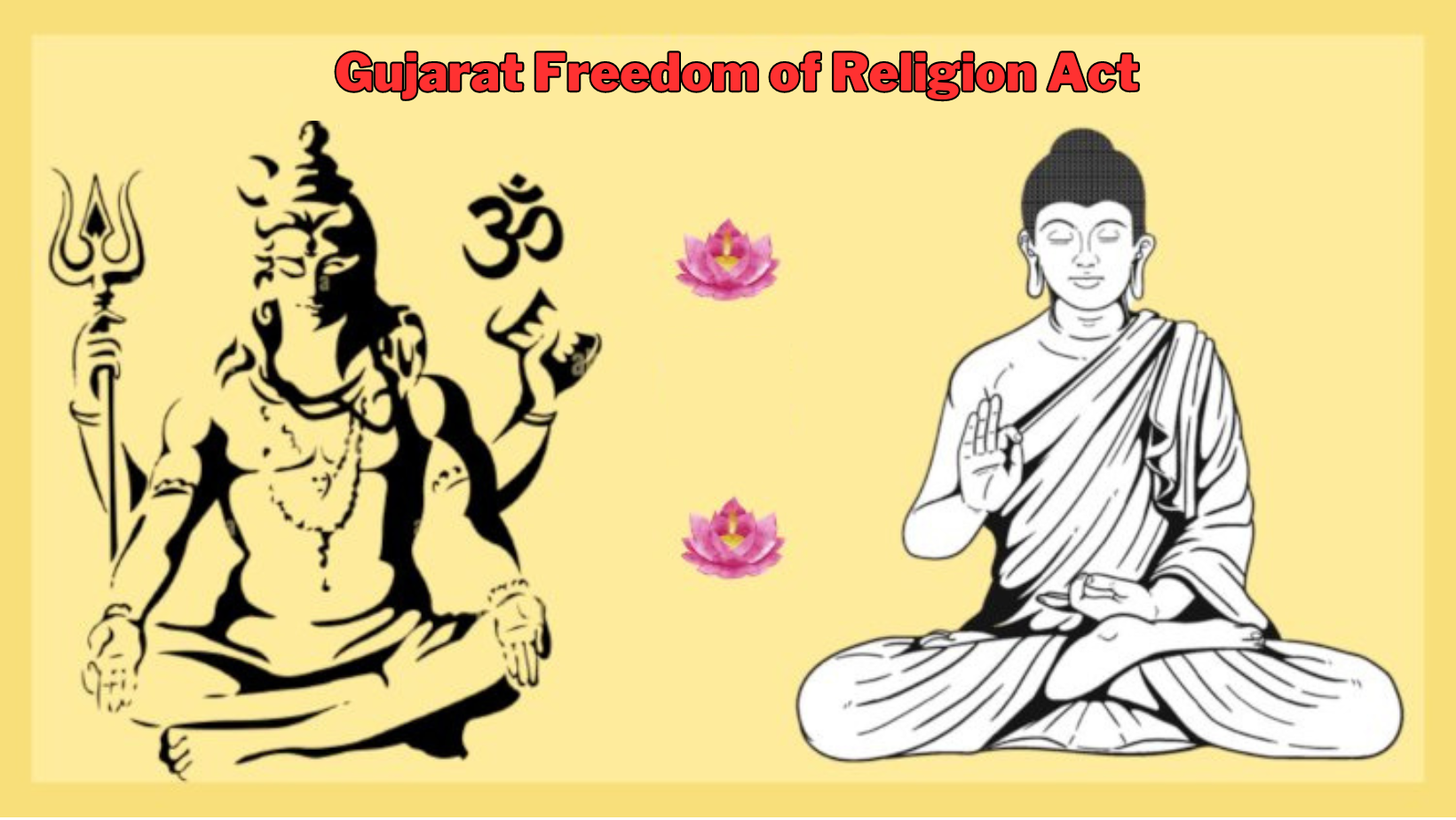Gujarat Freedom of Religion Act

- 13 Apr 2024
Why is it in the News?
The Gujarat government recently clarified that Buddhism and Hinduism must be considered as two separate religions for religious conversions in the state.
Why did the Gujarat Government Issue the Circular?
- The Gujarat government issued the circular to address an issue regarding the application process for converting from Hinduism to Buddhism.
- The circular, issued by the Home Department highlights that the proper procedures outlined in the Gujarat Freedom of Religion Act (GFR Act) are not being followed.
- The circular points out that some offices are rejecting these conversion applications, arguing that under Article 25(2) of the Constitution, Sikhism, Jainism, and Buddhism are considered part of Hinduism.
- Therefore, applicants are told they don't need permission for religious conversion.
- This interpretation refers to Article 25, which guarantees religious freedom.
- Article 25(2)(b) allows laws for social welfare or reform for Hindus, which includes Sikhs, Jains, and Buddhists.
- Notably, the circular contrasts with a proposed 2006 amendment to the GFR Act, which suggested considering Jainism and Buddhism as part of Hinduism.
- However, the circular clarifies that, according to the GFR Act, Buddhism must be seen as a separate religion.
How does the GFR Act Govern Religious Conversions in Gujarat?
- The Gujarat Freedom of Religion Act (GFR Act) controls how people change their religion in Gujarat.
- According to the state government, this law aims to stop religious conversion by offering rewards, using force, lying, or tricking people.
- One part of the law, Section 3, makes it a crime to force or persuade someone to change their religion, whether by using force, offering rewards, trickery, or arranging marriages.
- Another part, Section 3A, added in 2021, lets anyone who feels harmed or their relatives report these crimes to the police.
- People who break Section 3 can be sent to jail for up to three years and fined up to Rs 50,000.
- If the person affected is a woman, a child, or from certain communities, the punishment is harsher – up to four years in jail and a fine of Rs 1 lakh.
- For a religious conversion to be legal, Section 5 says the person leading the ceremony must get permission from the District Magistrate beforehand.
- And the person who changes their religion must tell the District Magistrate afterward.
- Not doing this can result in a one-year jail term or a fine of up to Rs 1,000.
- In 2021, the GFR Act was changed to include more rules.
- It now makes it a crime to change religion through marriage (Section 4A) and says marriages are void if one person converts before or after getting married (Section 4B).
- It also punishes people involved in organizations that unlawfully convert others (Section 4C). The accused now have to prove that the conversion was legal (Section 6A).
